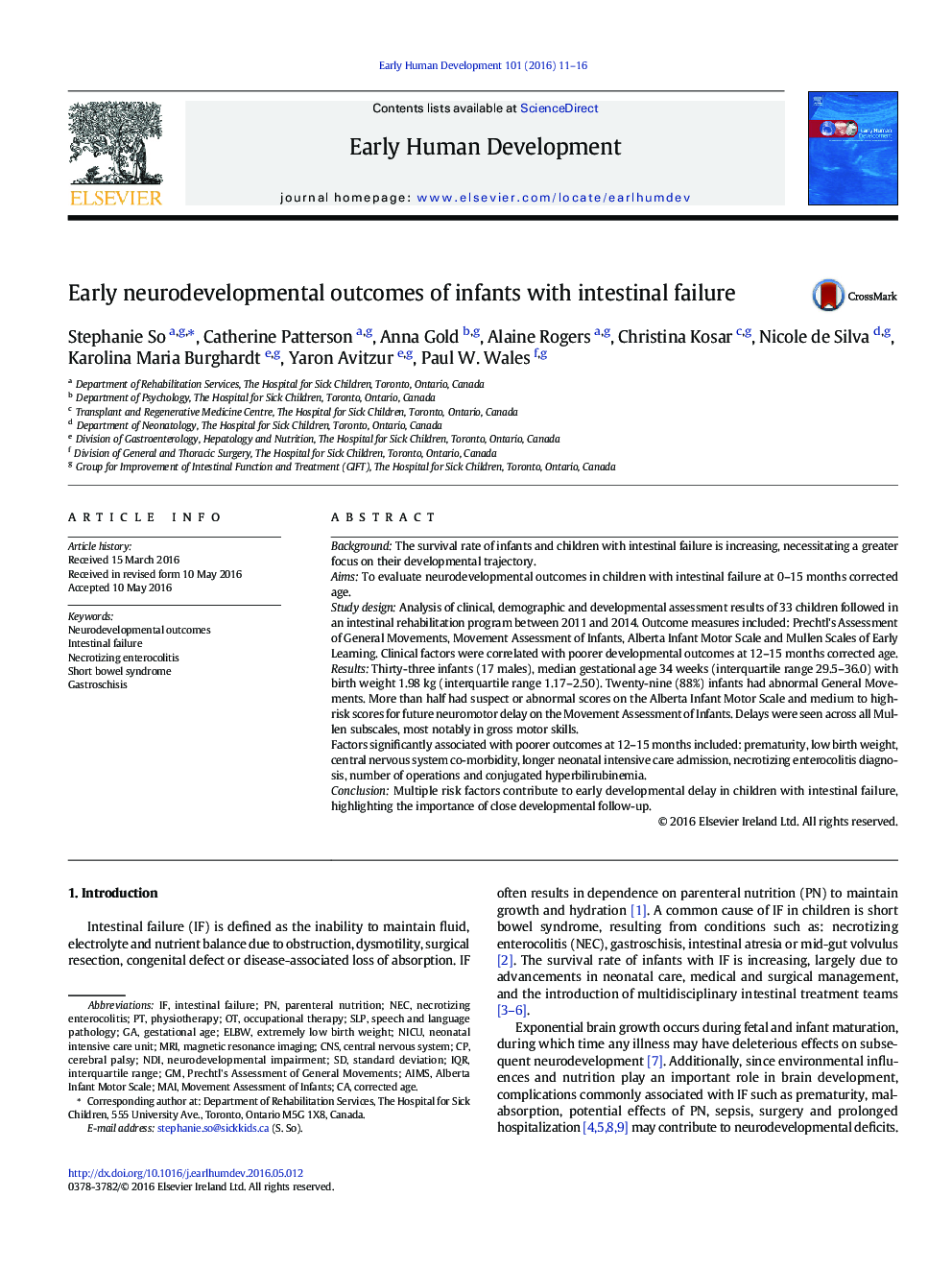| Article ID | Journal | Published Year | Pages | File Type |
|---|---|---|---|---|
| 3916660 | Early Human Development | 2016 | 6 Pages |
•Infants with intestinal failure present with multiple, significant medical co-morbidities.•There is an increased risk of early developmental delays in this population, most notably in gross motor skill development.•Specific factors related to intestinal failure may play a role in these delays, over and above the influence of prematurity.
BackgroundThe survival rate of infants and children with intestinal failure is increasing, necessitating a greater focus on their developmental trajectory.AimsTo evaluate neurodevelopmental outcomes in children with intestinal failure at 0–15 months corrected age.Study designAnalysis of clinical, demographic and developmental assessment results of 33 children followed in an intestinal rehabilitation program between 2011 and 2014. Outcome measures included: Prechtl's Assessment of General Movements, Movement Assessment of Infants, Alberta Infant Motor Scale and Mullen Scales of Early Learning. Clinical factors were correlated with poorer developmental outcomes at 12–15 months corrected age.ResultsThirty-three infants (17 males), median gestational age 34 weeks (interquartile range 29.5–36.0) with birth weight 1.98 kg (interquartile range 1.17–2.50). Twenty-nine (88%) infants had abnormal General Movements. More than half had suspect or abnormal scores on the Alberta Infant Motor Scale and medium to high-risk scores for future neuromotor delay on the Movement Assessment of Infants. Delays were seen across all Mullen subscales, most notably in gross motor skills.Factors significantly associated with poorer outcomes at 12–15 months included: prematurity, low birth weight, central nervous system co-morbidity, longer neonatal intensive care admission, necrotizing enterocolitis diagnosis, number of operations and conjugated hyperbilirubinemia.ConclusionMultiple risk factors contribute to early developmental delay in children with intestinal failure, highlighting the importance of close developmental follow-up.
